As forgeries go, literary fraud seems fairly harmless. Novelists are already liars; they make things up and pretend they’re true. And the extent to which we believe their lies determines the novel’s success. If nobody thinks the lies are even plausible, the novel usually fails. Crafting an intricate lie is the novelist’s goal, and we praise them when they get away with it.
But in certain cases, when the lie reveals itself to be, in fact, a lie, readers get bent out of shape. We don’t like to learn that we’ve been fooled, despite the fact that being fooled is the whole point of fiction. In these instances, we resent it. It’s one thing to be taken for a ride knowing that the ride is indeed a ride. It’s quite another to find out later that we’ve been made fools of – that somebody has claimed to have written the truth when it’s really just a pack of lies.
Some years ago, I pitched a very broad satire of the fraudulent memoir subgenre to an editor I’d worked with at Henry Holt & Co. I was going to call it My Absolutely 100% True Harrowing Story: A Memoir by Mendacity Wright. Mendacity was the transgender adopted child of a poor white trash sharecropper in Mississippi; all she knows is that her father was a full-blooded Cherokee. She goes on to discover her birth mother in a Palestinian refugee camp. She enjoys both a gay male and a lesbian period. She marries a notoriously flashy gangster who gets shot to death while enjoying a bowl of Fettuccine with clam sauce with Mendacity at his side, after which she becomes a drug addicted whore who has sex with rock stars (she names names – big names) but ultimately finds redemption as a nun who takes a vow of silence and lives in a convent in Dubuque. My editor loved the idea and took it to the editorial board, the members of which told him he had obviously gone insane, and the book went nowhere.
Here are some of the most notorious literary frauds ever perpetrated.
'A Million Little Pieces' by James Frey
At first there was no problem. James Frey simply wrote a novel based on his own experiences. It only became a scandal because Frey and his publishers – Doubleday for the hardback, Anchor Books for the paperback – got carried away and claimed that it wasn’t a novel at all but rather a memoir, the true, deeply disturbing story of the author’s descent into drug addiction, violence, and imprisonment, and it ends with his ultimate redemption. A Million Little Pieces caught the public’s imagination. Americans love to read real-life horror stories as long as they have a happy ending. Oprah selected it for her book club, and sales soared.
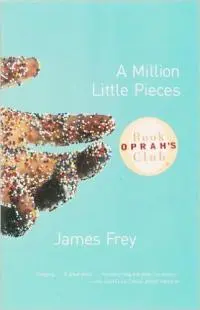 But in early 2006, thesmokinggun.com revealed that Frey had done significantly more than altering “small details,” as he had claimed earlier. Whole sections of the book turned out to have been entirely fabricated. No, he did not in fact spend 87 days in the slammer after hitting a policeman with his car while high on crack. No, Doubleday had not really fact checked the book. No, the book was not “brutally honest,” as a press release stated.
But in early 2006, thesmokinggun.com revealed that Frey had done significantly more than altering “small details,” as he had claimed earlier. Whole sections of the book turned out to have been entirely fabricated. No, he did not in fact spend 87 days in the slammer after hitting a policeman with his car while high on crack. No, Doubleday had not really fact checked the book. No, the book was not “brutally honest,” as a press release stated.
Oprah was not happy to learn any of this. She somehow got Frey to appear on her TV show and raked him over the coals for misrepresenting himself and his work. But it turned out that Oprah’s producers had lured Frey and his publisher, Nan Talese, onto the show under false pretenses; they’d agreed to appear on the misapprehension that it would be another publicity bonanza for the book, and only at the last minute did Oprah’s staff tell them that the real topic of the joint interview was “the James Frey Controversy.”
By this point, Random House had become Frey’s publisher. In the late summer of 2006, Random House agreed to refund the purchase price of the book to anyone who felt they’d been ripped off; all these irritated readers needed to do was submit a proof-of-puchase receipt for the book, a page torn out of the book, and a sworn statement that they had bought the book thinking that it was a memoir, not a novel.
By this point, the scandal had become ludicrous. Random House budgeted $2.35 million to pay off hordes of disgruntled readers, but only 1,729 bothered to file a claim. Subsequent editions of the book appeared with a statement that it was not a memoir but a work of fiction. Frey went on to found Full Fathom Five, a company that produced young adult fiction. Its business model was unusual, to say the least: Frey could take an author off his or her project at any time; he was not required to give his authors any credit for their work, and he paid them a standard $250 advance. Nice guy.
'Misha: A Memoir of the Holocaust Years' by Misha Defonseca
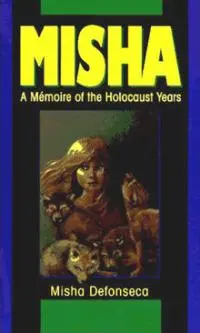 What could possibly be more poignant than a memoir written by a Jewish Holocaust survivor about her lonely search for her deported parents that began when she was only 7 years old? Walking 1900 miles across Europe by herself, little Misha found her way into the Warsaw ghetto. The part about her killing a German soldier seems blah. But the next detail is inspired: for a time she made her home with wolves! The book, which was published in 1997, was translated into 18 languages.
What could possibly be more poignant than a memoir written by a Jewish Holocaust survivor about her lonely search for her deported parents that began when she was only 7 years old? Walking 1900 miles across Europe by herself, little Misha found her way into the Warsaw ghetto. The part about her killing a German soldier seems blah. But the next detail is inspired: for a time she made her home with wolves! The book, which was published in 1997, was translated into 18 languages.
11 years later, a genealogist found little Misha’s baptismal certificate. Not only was the author a Catholic, not a Jew, but she’d spent the war as a schoolgirl in Brussels. Just about the only thing this “memoir” got right was that her parents really had been killed by the Nazis – though it wasn’t for being Jews, but rather for being members of the Belgian resistance.
Still, the author offered an explanation that was pure genius: “There are times when I find it difficult to differentiate between reality and my inner world.” When in doubt, just say you’re delusional!
'Love and Consequences' by Margaret B. Jones
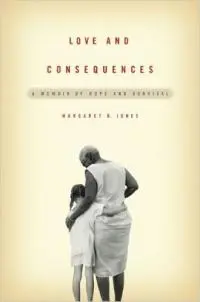 Mendacity Wright owed a lot to the author of this phony memoir that purported to be the autobiography of a part American Indian child who is taken in by foster parents and learns to survive the mean, gang dominated streets of South Central Los Angeles. She joins the Bloods. Although she doesn’t allude to an African-American background, she nevertheless spoke with distinctly black speech patterns when she was interviewed on National Public Radio; she kept calling her purportedly fellow gang members her “homies.”
Mendacity Wright owed a lot to the author of this phony memoir that purported to be the autobiography of a part American Indian child who is taken in by foster parents and learns to survive the mean, gang dominated streets of South Central Los Angeles. She joins the Bloods. Although she doesn’t allude to an African-American background, she nevertheless spoke with distinctly black speech patterns when she was interviewed on National Public Radio; she kept calling her purportedly fellow gang members her “homies.”
Michiko Kakutani, the lead book critic of the New York Times, fell for it. She praised the book enthusiastically, calling it “humane and deeply affecting.”
Her own sister ratted her out after seeing a profile of “Jones” in the Times; the sister revealed that her real name was Margaret Seltzer and that she’d grown up in Sherman Oaks, far, far away from the gangs of South Central. She’d even gone to a private school.
When confronted with the facts, Seltzer replied that she “thought it was an opportunity to put a voice to people who people don’t listen to.” 19,000 books had to be recalled by the publisher.
J.T. Leroy
L’affaire J.T. Leroy is one of the most troubling and absurd literary hoaxes of the last fifty years. Here’s the basic outline: Jeremiah “Terminator” Leroy began publishing stories in literary journals in 1996. Supposed to have been born in West Virginia in 1980, he claimed to have worked as a transgender prostitute while suffering the effects of drug addiction. His first novel, Sarah, takes place at West Virginia truck stops; it’s about, yes, a transgender prostitute who turns tricks with cross-dressing truckers. There’s more than enough obvious fiction in Sarah to keep its author from claiming that it’s strict autobiography. For instance, one of the truck stops has a chef who serves elaborate items such as crème-fraiche strudel and a saffron infused lobster-chocolate reduction. (Blech!)
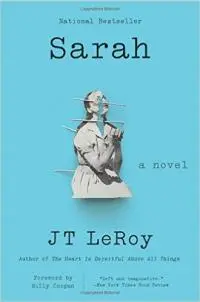 Still, the calculation involved in the creation of J.T. Leroy was so methodical that despite the high-minded explanations that followed his exposure as a fraud, some people actually bought it. He made a point of getting well-known writers on his side; he’d have late night chats with Dennis Cooper, who introduced him to Bruce Benderson, who put him in touch with Joel Rose. And he never appeared in public.
Still, the calculation involved in the creation of J.T. Leroy was so methodical that despite the high-minded explanations that followed his exposure as a fraud, some people actually bought it. He made a point of getting well-known writers on his side; he’d have late night chats with Dennis Cooper, who introduced him to Bruce Benderson, who put him in touch with Joel Rose. And he never appeared in public.
Until 2001, when someone claiming to be Leroy began making public appearances, always cloaked in a wig and sunglasses. He appeared to be following the advice of Lou Reed, who suggested that he avoid public appearances and get an imposter to show up instead.
J.T. Leroy started to fall apart in 2005, when New York magazine claimed that Leroy was in fact the author and musician Laura Albert. But Leroy wouldn’t give it up. Telling the Guardian that he was “23 – er, 24” when according to his own supposed biography he would have been 25, the Leroy persona began to crumble. Many critics and journalists felt used and saw the whole thing as a gigantic fraud. Writing in the Washington Post, David Segal found the subterfuge to be “one of the great literary hoaxes of our day, and it fooled a whole lot of people as well as the media, including The New York Times, which last year ran a lengthy profile of LeRoy." But some people took his – um, her – side, arguing as Hans Eisenbeis did, "I don't know what all the fuss is about. In the business, it's called a pseudonym, and the fact that J.T. LeRoy has been writing and publishing under that name for more than a decade ought to be track record enough to establish his (or her) credentials.... It's an interesting mystery, but seems to me sort of irrelevant to whether the work written by that person is publishable or not."
Which gets to the central question: despite the fact that Laura Albert engaged in a massive deception, is her work any good? If a novel’s sentences and story are engaging and well-constructed, does it matter who the author behind the mask really is?
J.T. Leroy may not be the best illustration of why it doesn’t matter. I found Sarah to be unreadable. It’s a novel in which falseness takes the place of the genuine, and its desire to be cutting edge comes off as rank neediness. Albert’s protagonist describes a bathroom as smelling “like an elephant.” I don’t have any idea what an elephant smells like, and neither could the narrator. It’s an overly cute description masquerading as good writing. It’s shocking how many people fell for it.
“J.T. Leroy” wrote three other books: Harold’s End, Labour, and the exceptionally poorly titled The Heart is Deceitful Above All Things, to which one is practically forced to respond, “with the exception of Laura Albert.”
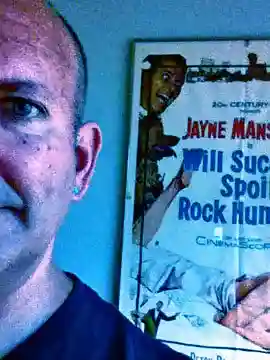
About the author
Ed Sikov is the author of 7 books about films and filmmakers, including On Sunset Boulevard:; The Life and Times of Billy Wilder; Mr. Strangelove: A Biography of Peter Sellers; and Dark Victory: The Life of Bette Davis.








